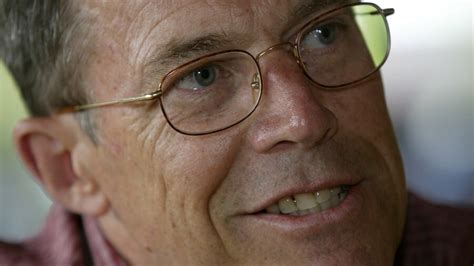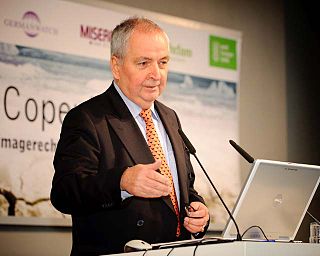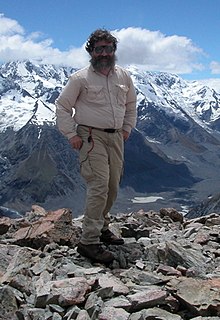A Quote by Kenneth P. Green
The climate's sensitivity to greenhouse gases is considerably lower than the Intergovernmental Panel on Climate Change claims - so much lower, in fact, that the warming we would expect from doubling the amount of carbon dioxide in the atmosphere would be quite modest and offer very little risk.
Related Quotes
The IPCC (Intergovernmental Panel on Climate Change, a group of more than 2,500 scientists) has provided the world community with first class assessments of the soaring temperatures the world is facing, the devastating impacts of these rises and the ways in which we can try and avoid the worst effects of global warming. We now know climate change is real and the hand of humankind in this warming is becoming clearer and clearer.
There is universal consensus among experts that the earth's atmosphere is heating up - and that we are responsible for it by putting carbon dioxide in the atmosphere. We also know that the consequences of global warming are catastrophic. But how do we make sure that all countries reduce greenhouse gases?
Scientists tend to focus on what they don't know more than what they do know. And there are a lot of things we still don't know about the climate. But we know the difference between climate variability and climate change, and right now the amount of carbon in the atmosphere is well outside the variability pattern - and that's quite quantifiable.
Each year we pump at least six billion tons of heat-trapping carbon into the innermost layer of our atmosphere, whose outer extent is only about twelve miles overhead. According to an IPCC (United Nations' Intergovernmental Panel on Climate Change) report released this year, atmospheric CO2 will, if the buildup is left unchecked, double from its pre-industrial level within the next century. That doubling of CO2 correlates with an increase in the global temperature of at least three to eight degrees Fahrenheit. The last ice age was just five to nine degrees colder than our current climate.
Here's the problem - carbon dioxide doesn't contribute to smog and isn't a health threat. All of this is being done because some people believe carbon dioxide is causing global warming, and that preventing carbon dioxide from entering the air is the only answer. Never mind that there is still an ongoing scientific debate about global warming itself, and that some respected climate scientists believe that methane is a better target, California legislators have locked their sites on carbon dioxide.
I think the mother of all arguments against eating meat now is the climate change argument. Methane is a much more powerful greenhouse gas than carbon dioxide and when we eat meat we wipe away many of the good things that we do when we try to create greener and more sustainable practices in the rest of our lives. So if you add the concern for climate change with other concerns that were there. I think the case for vegetarianism is pretty overwhelming.
Global warming results not from the emission of greenhouse gases into the atmosphere, but from an unusually high level of solar radiation and a lengthy - almost throughout the last century - growth in its intensity. It is no secret that when they go up, temperatures in the world's oceans trigger the emission of large amounts of carbon dioxide into the atmosphere. So the common view that man's industrial activity is a deciding factor in global warming has emerged from a misinterpretation of cause and effect relations.































